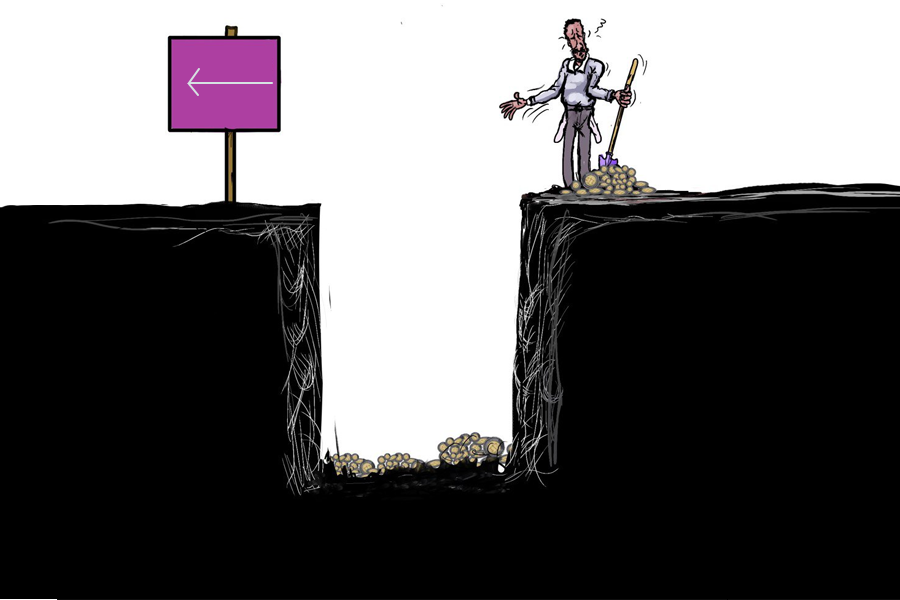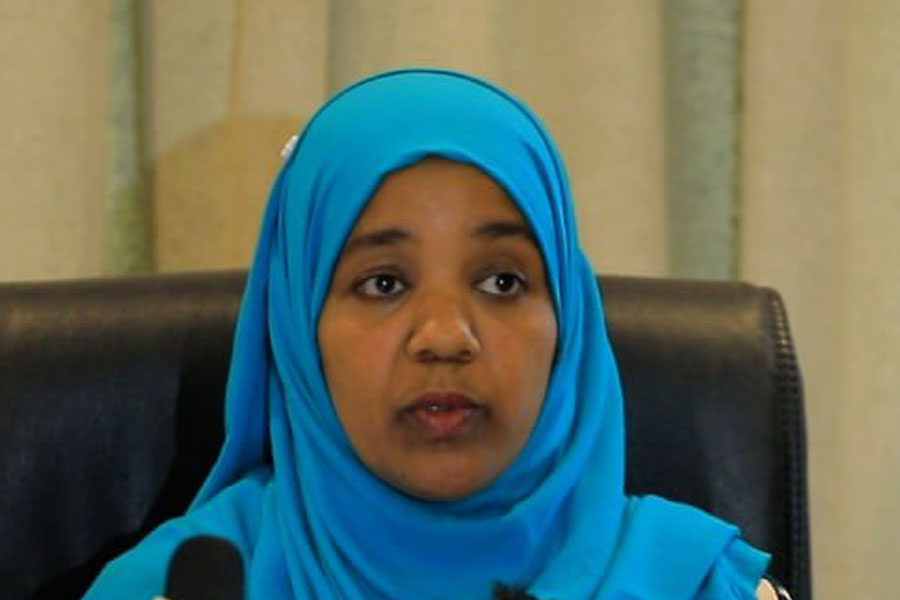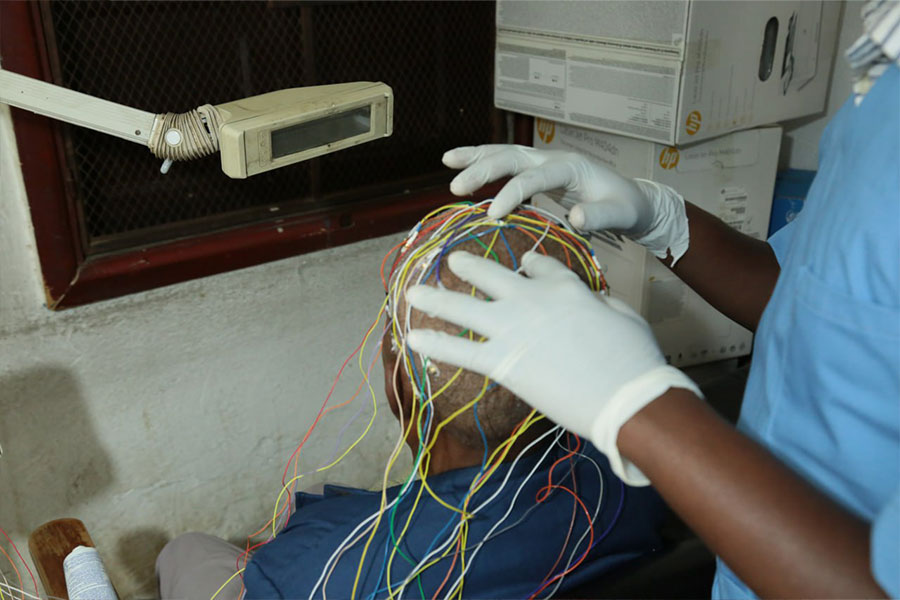
Editorial | Mar 18,2023
Feb 10 , 2024
By Ellen Johnson Sirleaf , Jean Kaseya
As African leaders convene in Addis Abeba, the pledge to deploy two million community health workers (CHWs) comes into sharp focus. With Africa projected to face a six million health worker shortfall by 2030, the continent's health infrastructure is on the balance, warn Ellen Johnson Sirleaf, a former president of Liberia, and Jean Kaseya, director-general of the Africa Centers for Disease Control & Prevention, in this commentary provided by Project Syndicate (PS).
The pledge made by Africa's leaders in 2017 to deploy two million community health workers (CHWs) marked a significant recognition of the essential role these workers play in advancing health across the continent. Seven years into this commitment, as leaders prepare to gather in Addis Abeba, a critical evaluation of progress is necessary. With a projected shortfall of six million health workers by 2030, the importance of CHWs in bridging Africa's health service gaps cannot be overstated.
The urgency to develop resilient community health-worker programs across the continent has escalated in the face of this looming crisis. We have witnessed how disease outbreaks can plunge a country into darkness – and how the power of CHWs can help pull it back into the light. Liberia's experience shows that community health workers need adequate resources and financial support to be effective. In the early 2010s, Liberia's efforts to offer primary health care in remote areas faced significant challenges. There was a shortage of health workers, and where CHWs were deployed, they were under-compensated. They did not have the necessary equipment or training to deliver the essential care that was so desperately needed.
As a result, different community health initiatives run in parallel by the government and other stakeholders failed to significantly impact patients – a common problem in many African countries.
In 2016, the Liberian government launched the National Community Health Assistant Program to address these issues and apply the lessons learned from the Ebola outbreak that began in 2014. With proper supervision, adequate salaries, and enough supplies to reach every household in their communities, community health workers were empowered to provide standardised, integrated primary healthcare services. The results speak for themselves.
Liberia's 4,000 community health workers now deliver nearly 50pc of all reported malaria treatments for children under five and consistently provide access to health services, even during the COVID-19 pandemic. Programs that take a similar approach have yielded positive results in other African countries.
Since Ethiopia implemented its community-based Health Extension Program, which has deployed 40,000 community health workers, vaccination rates have tripled, and child mortality has fallen dramatically. The experience of these and other countries shows that supporting health workers and integrating them into national health systems can save lives and create livelihoods. It should serve as a guide for expanding community health services across the continent.
A resilient community health workforce is key to overcoming existing and future health challenges in Africa, which currently range from alarming maternal and infant mortality rates to a high burden of communicable diseases. Equally worrying is the escalating climate crisis, which has underscored the urgency of improving access to care and building health systems adapting to a changing environment. Increasing the number of community health workers, and ensuring that they have adequate resources, is one of the most cost-effective and sustainable ways to achieve these goals.
Unfortunately, a daunting 4.4 billion dollar annual funding gap – compounded by fragmented financial flows – continues to slow our progress toward a healthier, safer, and more prosperous Africa. The solution is to adopt a "one plan, one budget, one report" framework, like that used by Liberia and Ethiopia. With this approach, governments outline their strategies for national community health programs, and partners coordinate resources and technical expertise to reduce the bureaucratic burden.
The Africa Centers for Disease Control & Prevention (ACDCP) and partners launched the first-ever continental coordination mechanism for community health in November 2023. Encouraging coordination among stakeholders will enable African countries to build effective and efficient community health worker programs to tackle the challenges of high-burden communicable diseases such as HIV, tuberculosis, malaria, and non-communicable diseases, as well as to respond better to emergencies, including epidemics and climate shocks.
The Africa CDC remains firmly committed to strengthening the community health workforce, which dovetails with the New Public Health Order – the organisation's health-security agenda – and the Afric Union's (AU) initiative to deploy two million additional community health workers on the continent. As part of this effort, the Africa CDC has collaborated with Africa Frontline First to mobilise the financing needed to professionalise community health workers.
Last year's Reaching the Last Mile Forum in Dubai was a success on that front: 12 partners committed to accelerating support for professional community health workers. The announcement also included 900 million dollars from the Global Fund over the next three years, 74pc of which is earmarked for Africa.
The private and public actors in Africa must take coordinated action. As heads of state convene for the AU Summit, we urge them to make developing an integrated professional community health workforce a top priority, with clear success metrics to enable data and evidence to be shared with member states. This will promote a culture of continuous learning and standardisation of CHW programs across Africa.
Community health is the key to a more prosperous, healthier Africa. We must seize the opportunity to train and deploy a robust corps of community health workers.
PUBLISHED ON
Feb 10,2024 [ VOL
24 , NO
1241]

Editorial | Mar 18,2023

Radar | Mar 04,2023

Radar | Jan 01,2022

Sunday with Eden | Aug 08,2020

Featured | May 11,2019

Commentaries | Dec 16,2023

Radar | May 04,2024

Agenda | Oct 28,2023

Fortune News | Feb 16,2019

Radar | Jul 25,2020

My Opinion | 132041 Views | Aug 14,2021

My Opinion | 128437 Views | Aug 21,2021

My Opinion | 126364 Views | Sep 10,2021

My Opinion | 123987 Views | Aug 07,2021





Dec 22 , 2024 . By TIZITA SHEWAFERAW
Charged with transforming colossal state-owned enterprises into modern and competitiv...

Aug 18 , 2024 . By AKSAH ITALO
Although predictable Yonas Zerihun's job in the ride-hailing service is not immune to...

Jul 28 , 2024 . By TIZITA SHEWAFERAW
Unhabitual, perhaps too many, Samuel Gebreyohannes, 38, used to occasionally enjoy a couple of beers at breakfast. However, he recently swit...

Jul 13 , 2024 . By AKSAH ITALO
Investors who rely on tractors, trucks, and field vehicles for commuting, transporting commodities, and f...

Jul 12 , 2025
Political leaders and their policy advisors often promise great leaps forward, yet th...

Jul 5 , 2025
Six years ago, Ethiopia was the darling of international liberal commentators. A year...

Jun 28 , 2025
Meseret Damtie, the assertive auditor general, has never been shy about naming names...

Jun 21 , 2025
A well-worn adage says, “Budget is not destiny, but it is direction.” Examining t...

Jul 13 , 2025 . By YITBAREK GETACHEW
The Addis Abeba City Revenue Bureau has introduced a new directive set to reshape how...

Jul 13 , 2025 . By BEZAWIT HULUAGER
Addis Abeba has approved a record 350 billion Br budget for the 2025/26 fiscal year,...

Jul 13 , 2025 . By RUTH BERHANU
The Addis Abeba Revenue Bureau has scrapped a value-added tax (VAT) on unprocessed ve...

Jul 13 , 2025 . By NAHOM AYELE
Federal lawmakers have finally brought closure to a protracted and contentious tax de...